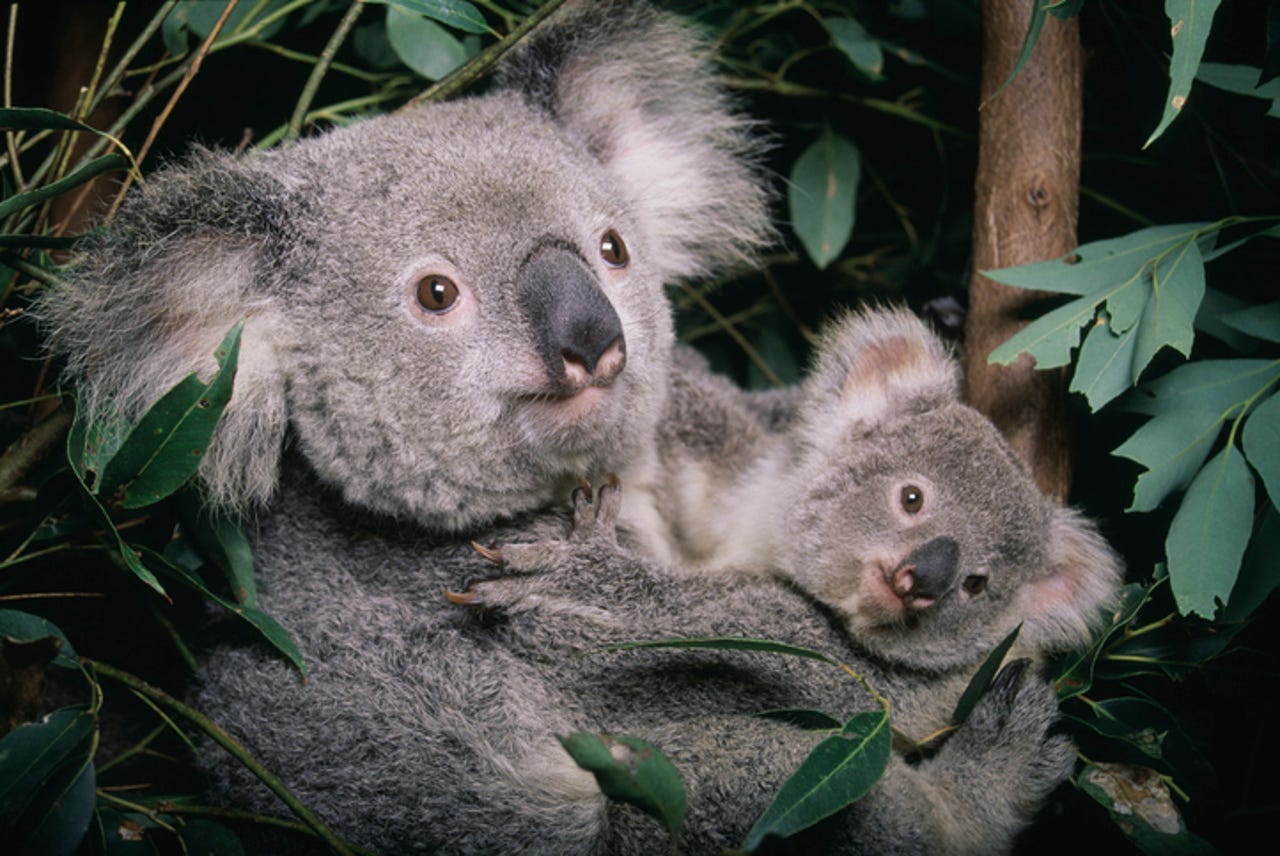































 Image: Getty Images
Image: Getty Images In efforts to speed up koala conservation work, the University of Sydney (USyd) has teamed up with Amazon Web Services to democratise the genome data of 450 koalas by establishing a cloud-based koala genome library.
USyd has initially made 96 sequenced koala genomes accessible. It will be the first of several batches of the 450 koala genomes that will be made available this year.
The aim of democratising the research data for USyd is so its researchers can work with scientists and conservationists to share research insights, findings, and apply solutions faster -- something that has not been previously possible as processing and analysing genome data can often take years.
"The best way to safeguard the koala population is generally to stop cutting down their trees," USyd Australasian Wildlife Genomics Group research manager Dr Carolyn Hogg said.
"But as much as many of us would like to say, 'let's just stop doing that', we have to be realistic. We can't stop development. We have to find multiple, creative solutions to these problems, and not be wedded to tools we developed in the '90s."
She added the data could help researchers compare and understand the diversity of the koala species.
"Koalas from Queensland tend to be a little bit smaller and browner in colour, while koalas in Victoria tend to be bigger, grey, and fluffier," Hogg said.
"The level of variation had led many scientists to believe there might be two separate species of koala, until the koala reference genome was sequenced and proved this wrong.
"Generating this new, broader genome dataset let us start to ask questions like, 'Do koalas living to the west have gene variants that we don't see on the east coast, where it's colder and wetter -- so are those genes potentially important for dealing with climate change?'"
The work between the university and AWS is part of the AWS Open Data sponsorship program. Under the program, AWS will cover the cost of storage for datasets of high value to the scientific community and make it available to be accessed and analysed in the cloud.
The project, which has backing from the federal government and the New South Wales government, builds on previous koala genome sequencing work that USyd carried out in 2018.
Leveraging AWS cloud for genome sequencing, however, is not new for USyd. Last year, Hogg also led the charge on genomic research to prevent the Tasmanian devil from extinction.
Both projects fall under USyd's Threatened Species Initiative, which Hogg is leading. Launched in May 2020, the project has generated resources for 62 species, which will all eventually be available on the AWS Open Data sponsorship program.
"I started working with AWS because I had so much data and I couldn't process it efficiently using the on-premises IT systems we had," Hogg said. "We were able to reduce data analysis from 10 days to just five hours using AWS. When I realised the power of working in the cloud, it encouraged me to kind of go beyond my sphere of biology and start finding people who work in other fields of expertise."
Other koala conservation work is currently being carried out in South Australia and Queensland, both of which are using drones to help provide more accurate estimates about the number of surviving koalas in each state.
 Hot Tags :
Innovation
Hot Tags :
Innovation